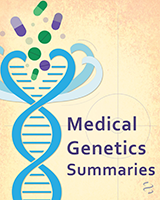| Associated phenotype | HLA-B*15:02 is strongly associated with SJS/TEN | HLA-A*31:01 is associated with all carbamazepine hypersensitivity phenotypes, including MPE, HSS, and (less strongly) SJS/TEN |
| Allele distribution | Predominantly concentrated in Southeast Asia, e.g., Hong Kong, Thailand, Malaysia, Vietnam, Philippines, Taiwan, Singapore. | Widely distributed across a range of populations including Europeans, Japanese, South Koreans and Han Chinese |
| Phenotype distribution | The strong association of HLA-B*15:02 with carbamazepine-induced SJS/TEN is largely confined to individuals from Southeast Asian countries | HLA-A*31:01 has been associated with carbamazepine-induced hypersensitivity reactions, particularly HSS, across different populations including European and Japanese individuals. |
| Pharmacogenetic screening recommendations | Screening for HLA-B*15:02 is mandated in patients from Southeast Asia, prior to initiation of carbamazepine therapy.
The FDA states that “patients with ancestry in genetically at-risk populations should be screened for the presence of HLA-B*15:02 prior to initiating treatment with carbamazepine”. | Screening is not currently mandated prior to initiation of carbamazepine therapy.
The FDA states that the “risks and benefits of carbamazepine therapy should be weighed before considering carbamazepine in patients known to be positive for HLA-A*31:01”. |
| Allele frequencies (reported by the FDA (1)) | Greater than 15% of the population is reported positive in Hong Kong, Thailand, Malaysia, and parts of the Philippines, compared to about 10% in Taiwan and 4% in North China.
South Asians, including Indians, appear to have intermediate prevalence of HLA-B*15:02, averaging 2% to 4%, but higher in some groups. HLA-B*15:02 is present in less than 1% of the population in Japan and Korea.
HLA-B*1502 is largely absent in individuals not of Asian origin (e.g., Caucasians, African-Americans, Hispanics, and Native Americans). | HLA-A*31:01 is expected to be positive by more than 15% of patients of Japanese, Native American, South Indian (for example, Tamil Nadu) and some Arabic ancestry; up to about 10% in patients of Han Chinese, Korean, European, Latin American, and other Indian ancestry; and up to about 5% in African- Americans and patients of Thai, Taiwanese, and Chinese (Hong Kong) ancestry. |
